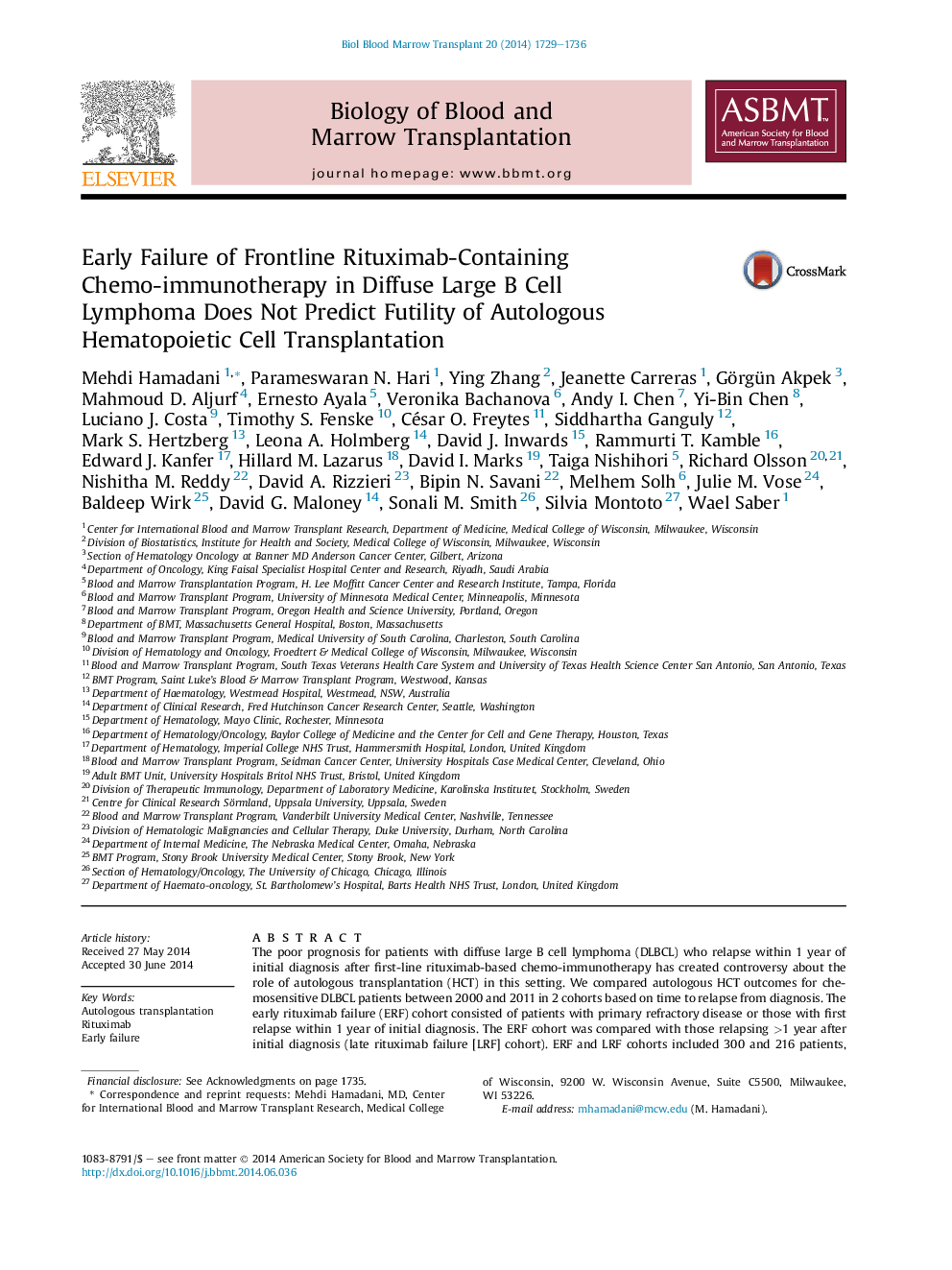| Article ID | Journal | Published Year | Pages | File Type |
|---|---|---|---|---|
| 2101976 | Biology of Blood and Marrow Transplantation | 2014 | 8 Pages |
•Auto-HCT provides durable disease control in chemosensitive DLBCL despite ERF.•Auto-HCT can salvage DLBCL with primary refractory disease.•Patients surviving 9months post auto-HCT disease free have excellent outcomes.
The poor prognosis for patients with diffuse large B cell lymphoma (DLBCL) who relapse within 1 year of initial diagnosis after first-line rituximab-based chemo-immunotherapy has created controversy about the role of autologous transplantation (HCT) in this setting. We compared autologous HCT outcomes for chemosensitive DLBCL patients between 2000 and 2011 in 2 cohorts based on time to relapse from diagnosis. The early rituximab failure (ERF) cohort consisted of patients with primary refractory disease or those with first relapse within 1 year of initial diagnosis. The ERF cohort was compared with those relapsing >1 year after initial diagnosis (late rituximab failure [LRF] cohort). ERF and LRF cohorts included 300 and 216 patients, respectively. Nonrelapse mortality (NRM), progression/relapse, progression-free survival (PFS), and overall survival (OS) of ERF versus LRF cohorts at 3 years were 9% (95% confidence interval [CI], 6% to 13%) versus 9% (95% CI, 5% to 13%), 47% (95% CI, 41% to 52%) versus 39% (95% CI, 33% to 46%), 44% (95% CI, 38% to 50%) versus 52% (95% CI, 45% to 59%), and 50% (95% CI, 44% to 56%) versus 67% (95% CI, 60% to 74%), respectively. On multivariate analysis, ERF was not associated with higher NRM (relative risk [RR], 1.31; P = .34). The ERF cohort had a higher risk of treatment failure (progression/relapse or death) (RR, 2.08; P < .001) and overall mortality (RR, 3.75; P < .001) within the first 9 months after autologous HCT. Beyond this period, PFS and OS were not significantly different between the ERF and LRF cohorts. Autologous HCT provides durable disease control to a sizeable subset of DLBCL despite ERF (3-year PFS, 44%) and remains the standard-of-care in chemosensitive DLBCL regardless of the timing of disease relapse.
